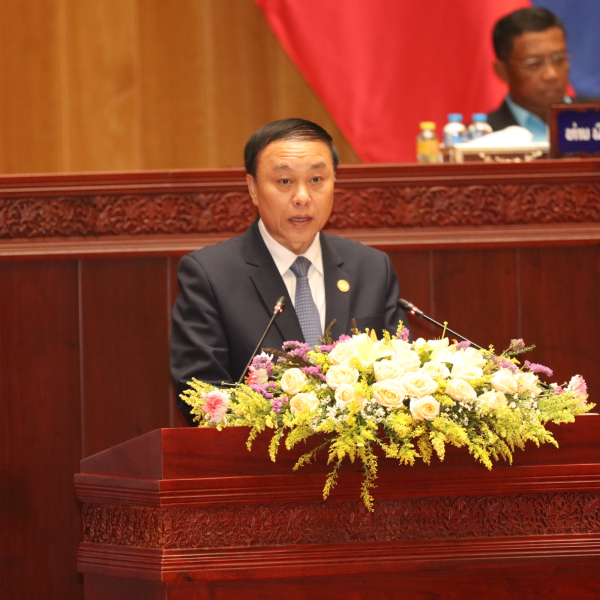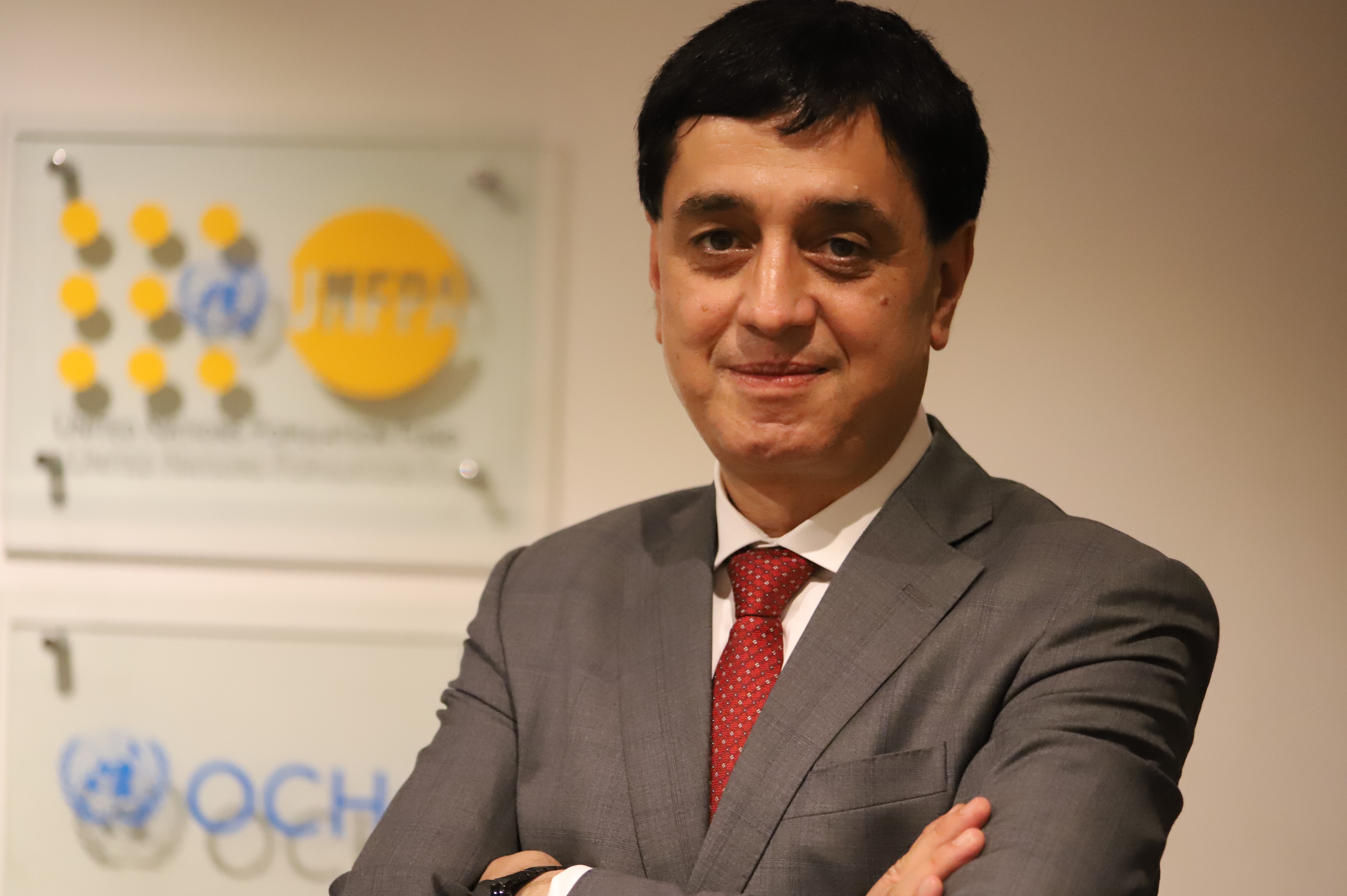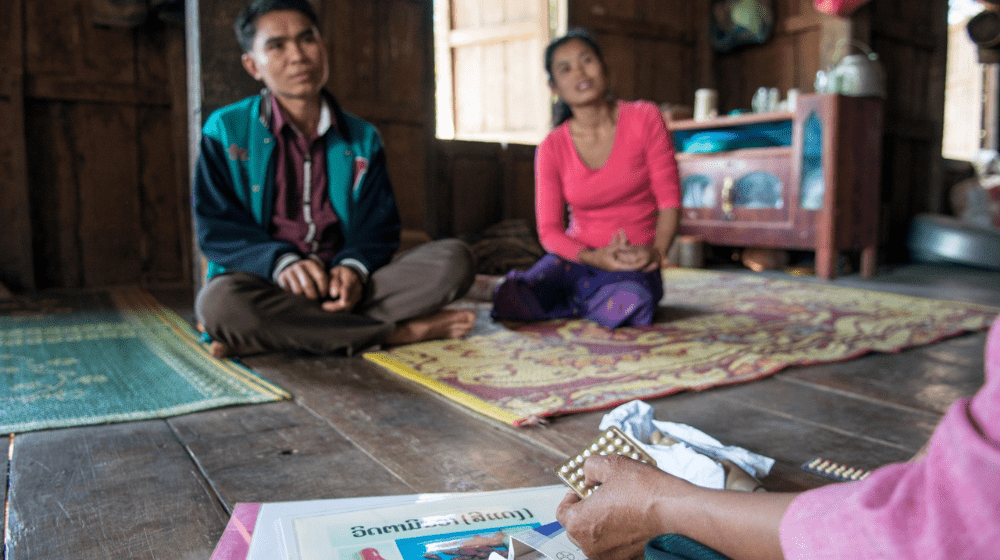Joint Opinion-Editorial
By: H.E Dr. Bounfeng Phoummalaysith, Minister of HealthAnd Dr. Bakhtiyor Kadyrov, UNFPA Representative
As Lao PDR faces an ongoing and rapid demographic transition, enormous opportunities arise when the country is preparing to benefit from the demographic change to maximize human capital development. The population of Lao PDR is projected to increase by almost 1 million to reach 8.1 million in 2030. The largest age groups will be those in the working age and reproductive age. With such a consequent human capital, social and economic growth is possible if everyone is able to enjoy and fulfill equal rights and choices.
Sustainable development is only possible if demographic change translates into actions ensuring individuals regardless of their ages, gender or socio-economic backgrounds are provided with equal right to education, sexual and reproductive health service and care, and employment opportunities to fully contribute to socio-economic growth.
Similarly, progress will be constrained if every person – particularly every girl – cannot pursue her education or navigate her transition to adulthood assured of her human rights. Such assurance includes the freedom to decide when and whom to marry, the timing and number of her children, and the security to balance work and family life.

So what does it take to realize the demographic dividend?
The most essential investments are: building the capabilities of people and ensuring their rights and freedoms to achieve their potential. Young people, especially women and girls, those in rural areas, ethnics and with disabilities need the chance to gain the education, skills and experience to succeed. They need adequate knowledge and equal access to services to be able to fulfill their bodily autonomy, combat and reject misconceptions and be protected from harmful social and cultural practices such as early marriage and early childbearing. They need access to the full set of human rights.
Safe and voluntary family planning is a fundamental human right. Family planning is central to gender equality and women’s empowerment, and it is a key factor in reducing poverty, increasing people’s ability to build a better future for themselves, their families, their communities and the whole nation.
Family planning is more than just having fewer children. It also includes having the children at the desired time and spacing births. This steadily contributes to improving maternal and child health, reducing families expenses and empowering women to pursue their education or career goals, which consequently contribute to improving the economy. Contraception is also very helpful to those who are not ready to have or believe they already have enough children.
Family planning’s benefits range from improved maternal and child health to increased education and empowerment for women, to more financially secure families, to stronger national economies. According to an investment case - “Prioritizing Health Investments for Human Capital Development, which was conducted by UNFPA Lao PDR in 2022, every dollar invested in family planning will give USD 33.6 in return. By investing in the most economical interventions: rights-based family planning methods and by making them available in all provinces, we can avert 1,044,888 unintended pregnancies which will result in reducing the cost requirements for other health interventions and lead to economic benefits from increased workforce participation, additional years of education for adolescents, and increased lifetime earnings for women. Family planning enables couples and individuals to increase household savings and invest more in the health and education of their children. Parents will have more opportunities to invest more time and resources in each child.

In 1994, Lao PDR was one of the 179 governments to affirm ICPD Programme of Action and to recognize reproductive health and rights – including voluntary family planning – as foundational to development. Since then, Laos has been working closely with the United Nations Population Fund to improve the supply chain, strengthen national health systems, put in place policies advancing sexual and reproductive health rights and create a conducive environment by combating misconception, stigma, discrimination and harmful social norms. The joint efforts of the Lao government and UNFPA has helped to close the gap for the unmet need for family planning and prevent progress from rolling back due to pandemics and other emergency contexts. This leadership in convening with partners led to harmonized and synergized services and awareness programs using evidence and strong policies. Diverse and innovative approaches, including engaging the media and private sector, piloting telehealth and setting mobile vans and special Adolescents and Youth Friendly rooms, as well as training and deploying ethnic midwives, have shown that focusing on well-being benefits the whole ecosystem.
As we celebrate World Contraception Day, let us advocate together for every family, every pregnancy, to be a result of choice, not chance or coercion. We must support women and girls' right to decide for her own body and life.
“By choice, not by chance”: contraceptive options give people the power to shape their own future. It is the power to decide when or whether to start a family, to pursue one's education and career goals, and to live a quality, healthy and fulfilling life and have a bright future.
On this World Contraception Day, let us celebrate this power and reaffirm our commitment to making contraception accessible to everyone who needs it and wants it.


